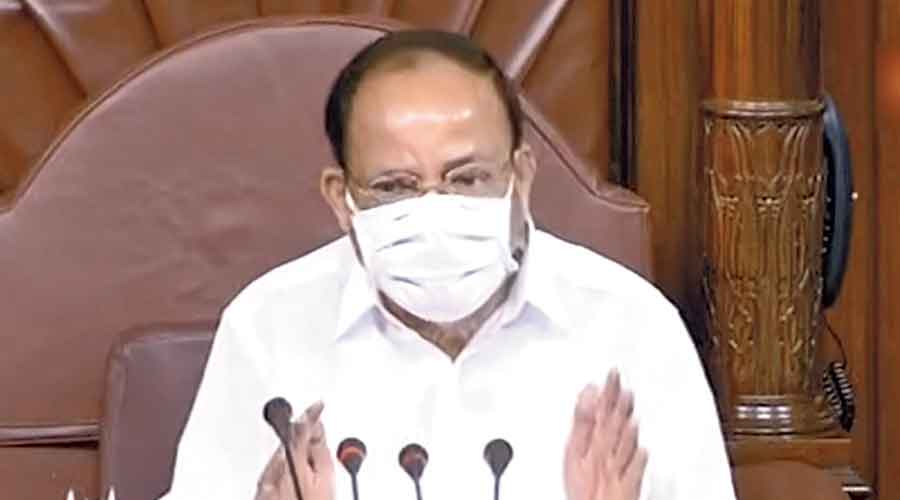Underlining the need to make the anti-defection law more stringent, Vice President M Venkaiah Naidu on Saturday said if loopholes in it are not plugged, “we will be making a mockery of democracy”.
He also cautioned that people will lose faith in the political class unless urgent and collective action is taken towards cleansing the system and promoting clean politics.
Delivering the third Atal Bihari Vajpayee Memorial Lecture organised by the India Foundation in Hyderabad, Naidu lamented that the absence of value-based politics, lack of ideology, hunger for power, muscle and money power and the entry of people with a criminal background into politics were leading to violence in the political arena.
“Unless these undesirable trends are checked, the situation will further deteriorate and cause irreparable damage to the country’s polity,” he cautioned according to the text of his speech.
Drawing attention to the manner in which the anti-defection law has been rendered ineffective, Naidu emphasised the need to make it more stringent and effective.
Noting that defection matters cannot remain undecided for long periods, he suggested making it mandatory for the presiding officers to dispose of defection matters within three months. “We will be making a mockery of democracy if we fail to plug the loopholes in anti-defection laws,” Naidu, also the chairperson of Rajya Sabha, observed.
According to PRS Legislative Research, the anti-defection law seeks to prevent political defections which may be due to reward of office or other similar considerations.
The Tenth Schedule was inserted in the Constitution in 1985. It lays down the process by which legislators may be disqualified on grounds of defection by the presiding officer of a legislature based on a petition by any other member of the House.
He felt that all political parties should put an end to “politics of convenience” and practice the “politics of conviction” and “politics of consensus” as demonstrated by former prime minister Atal Bihari Vajpayee.
He also called upon the political parties to shun populism and accord priority to long-term development.
Expressing dismay over the sway of 4Cs - cash, caste, criminality and community - in Indian politics, he appealed to the people to elect their representatives on the basis of other 4Cs - character, conduct, calibre and capacity.
Naidu emphasised that it is the duty of all political parties to ensure that their members, including legislators, maintain ethical conduct at all times and at all places. He also appealed to the legislators to raise the level of debates, follow standards, avoid unruly behaviour and always adhere to 3Ds - discuss, debate and decide - avoid the “4th D” - disrupt.
Speaking on the theme of this year’s lecture, “Building democratic consensus - The Vajpayee way”, Naidu said for Vajpayee, consensus was not an expedient political tool rather it was a core element of his convictions. His consensual approach made him widely acceptable across the social and political spectrum, the vice president added.
This consensual approach enabled him to successfully lead a large coalition to its full term in an era of unstable coalition governments.
Naidu described Vajpayee as the “father of coalition practices” in India. However, Vajpayee's ability to forge consensus did not necessarily mean compromise all the time, Naidu said.
He cited the example of Vajpayee’s second stint as the prime minister in 1999 when he refused to budge under the pressure of a coalition partner and sacrificed his government.
Calling Vajpayee as ‘vikas purush’, Naidu said that despite heading a coalition government, he successfully overcame all hurdles and paved the way for socio-economic transformation of the country.











